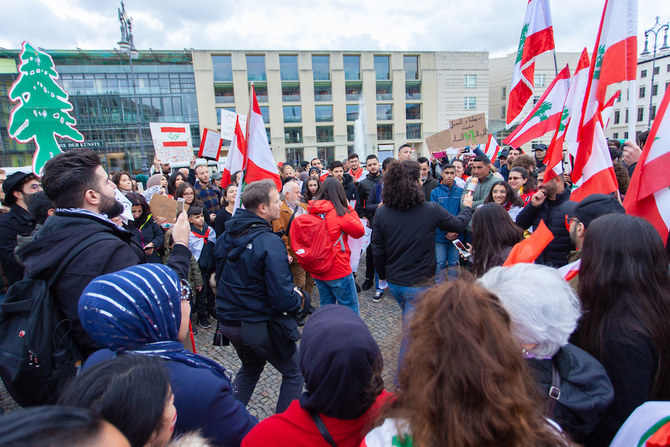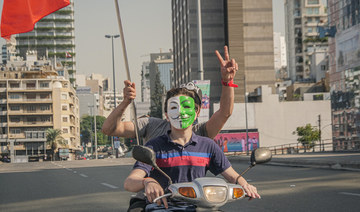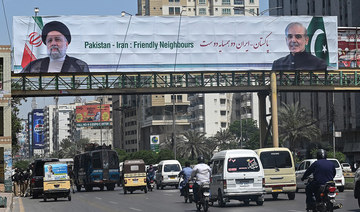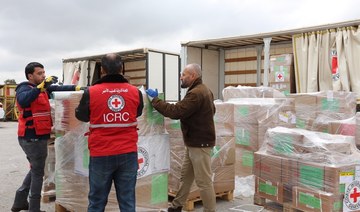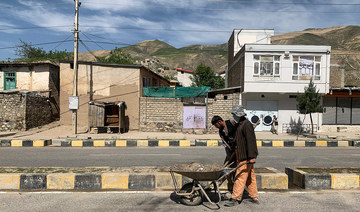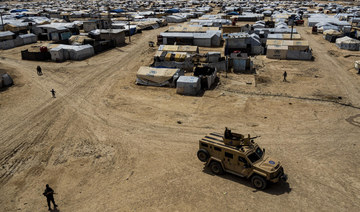DUBAI: For three weeks now, as tens of thousands have come on to the streets of Lebanon to demonstrate their anger at the political elite, cities across Europe, North America and Australia have witnessed rallies by members of the Lebanese diaspora expressing their solidarity and support.
Despite the huge distances that separate the overseas Lebanese communities from each other and also from their home country, the protesters have a clear and unambiguous message: “We need a new non-sectarian government.”
Overseas Lebanese interviewed by Arab News said they intend to keep protesting even after the resignation of Saad Hariri as prime minister on Oct. 29, because their principal objective is to get the “whole government” to resign.
Among those who have been protesting on the streets of Amsterdam is Mariam El-Chami, 29, a member of the overseas Lebanese community in the Netherlands that has staged two solidarity rallies so far.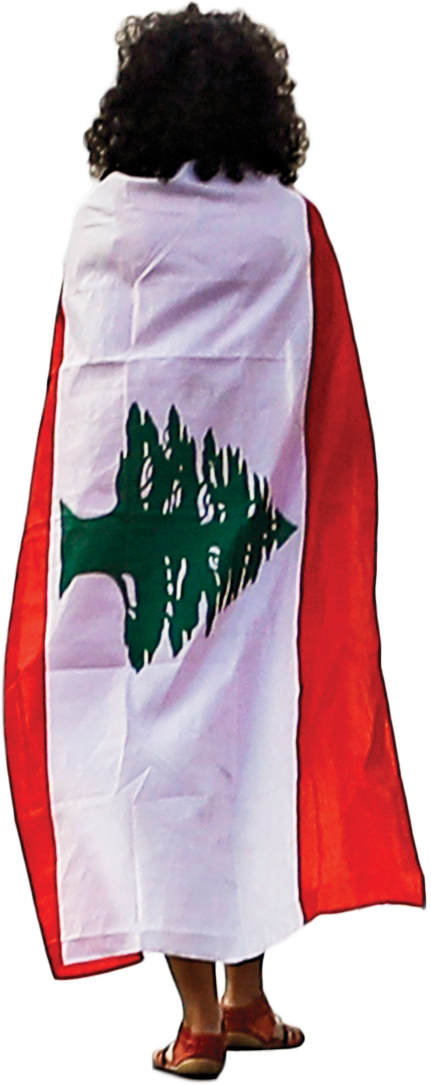
More than 300 people converged on the city’s Dam Square on Oct. 26 to voice their opposition to the status quo in Lebanon and salute the unity of the Lebanese people, just days after a similar rally was held in The Hague.
“For the first time I truly felt like I belong to the identity I was born with, one that is beyond our differences and is focused on the prosperity of our nation. I am 100 percent aligned with what the people in Lebanon are asking for,” said El-Chami.
The trigger for the protest movement in Lebanon was a government announcement on Oct. 17 that WhatsApp calls would be taxed. The move was viewed by many Lebanese as “the last straw” following the introduction of a series of unpopular measures by the government since it declared “a state of economic emergency” in late September.
El-Chami believes the current “revolution” is one that goes beyond the “tax proposal,” and is a result of a corrupt government that has “left its people jobless, hungry, and without basic services such as garbage collection, 24-hour electricity, and clean water.”
Pointing to the popular slogan “Everyone means everyone,” she said no politician is exempt from the demand for the resignation of the government.
“The revolt in Lebanon now is against a political elite that has exploited sectarian divisions in the country for over 30 years,” El-Chami said.
“I might have not experienced the civil war, but I had to live with its consequences.”
To many like El-Chami, Hariri’s resignation only means one thing — “that we are marching in the right direction.”
“The focus should now be on the establishment of an interim government with a mandate to prevent a total collapse of the Lebanese economy and to organize early elections on a non-sectarian basis,” said El-Chami.
While the political movement may be “leaderless”, it has a good chance of throwing up great minds who would be willing to build the kind of Lebanon people have long been waiting for, she said.
Amal Dib, a researcher who lives in Berlin, said that the main objective of the overseas demonstrations is to send messages of support and solidarity with the protests in Lebanon.
Buoyed by the presence of more than 1,000 people at the first demonstration near the Brandenburg Gate, the Lebanese community in Germany has no plans to stop.
“We are echoing the chants being repeated all over Lebanon against corruption, against the sectarian system and against attempts to divide the people,” Dib said.
“We are chanting slogans about everything from the need for equality, women’s rights and minority rights to the current control over the banks in Lebanon.”
Held almost on a weekly basis, the demonstrations in central Berlin have seen families, students and children gather in the same location, chant the same slogans and voice the same expressions of solidarity with protesters back home.
“This revolution has demolished many divisive stereotypes and borders that had stayed on as remnants of the civil war,” Dib told Arab News.
“When you hear chants from Tripoli to Nabatieh voicing support (for the protest movement), this sends a strong message that people are standing together regardless of differences,” she said.
Hoping to also draw attention among the German public, Dib believes it is important to spread awareness about the Lebanese revolution globally.
“Our first demand was to dismantle the current government, and the resignation of Al-Hariri is a big step forward. 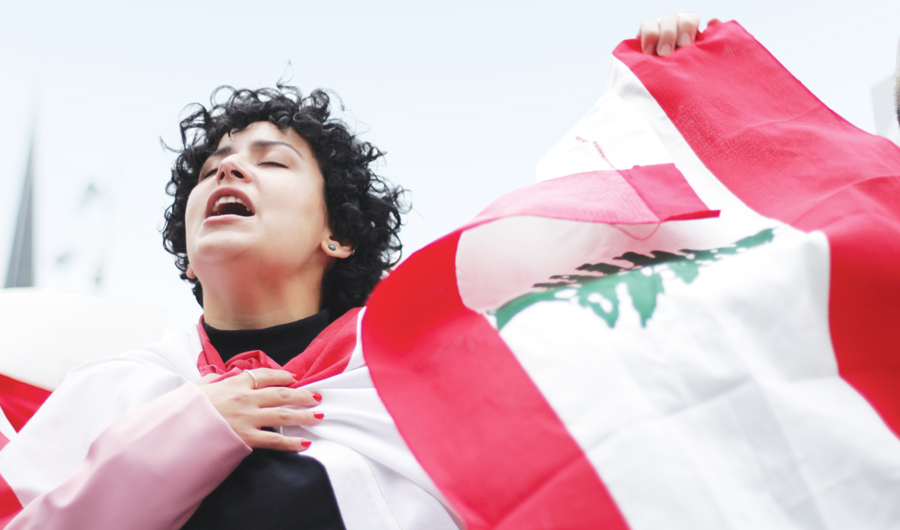
For the first time I truly felt like I belong to the identity I was born with, one that is beyond our differences.
Mariam El-Chami, Lebanese protester (above)
“But what comes after is more important. We need to form a new government outside of the present elitist sectarian system — a government made up of professionals who can guide the country through change and usher in reforms,” said Dib.
As someone who left Lebanon over seven years ago to pursue higher education in Berlin, Dib feels the reason the people of Lebanon have to seek opportunities abroad is the existing political dispensation.
“People are living abroad because of a sectarian system that does not provide us with employment, education, basic human rights,” she said.
“These protests are for every mother who cries for her son who had to leave the country, and for all the loved ones who are separated.”
Her social and economic concerns are echoed by Naji Arbid, a Lebanese-French carpenter who is settled in Antibes, in southern France.
“Life in Lebanon is too expensive, unemployment is high, and many people have multiple jobs just to feed their families,” he told Arab News.
“People left their country after the civil war to find a better life, and many who stayed out are working very hard and paying taxes.”
Arbid, who moved to France at the age of 13, said he often dreams about moving back home to be close to his family, but it is sadly not an option he can consider under the circumstances.
Voicing his demands, Arbid and hundreds of Lebanese residents in France are taking part in weekend protests in Nice in the hope of “writing a new history” for their country.
“I am Lebanese before anything else. I don’t want to see people asking each other: Which part of Lebanon are you from?”
Speaking to Arab News from London, Ali Makke, a lecturer in promotional cultures and public diplomacy, had only praise for the power of the Lebanese diaspora and their wisdom in “raising one flag.”
Makke, who is originally Lebanese, has taken part in a 500-strong rally near the Lebanese embassy in London. He described the crowd as “educated, civilized and peaceful people, who are articulate in their demands and straight to the point.”
“There are two sets of demands. The first is about getting rid of the sectarian system.” He said the second set concerns human rights, gender equality and education.”
What these protests show, Makke said, is that “the Lebanese people are articulate, can be organized and peaceful, and are driven and very serious about making their country better.”






